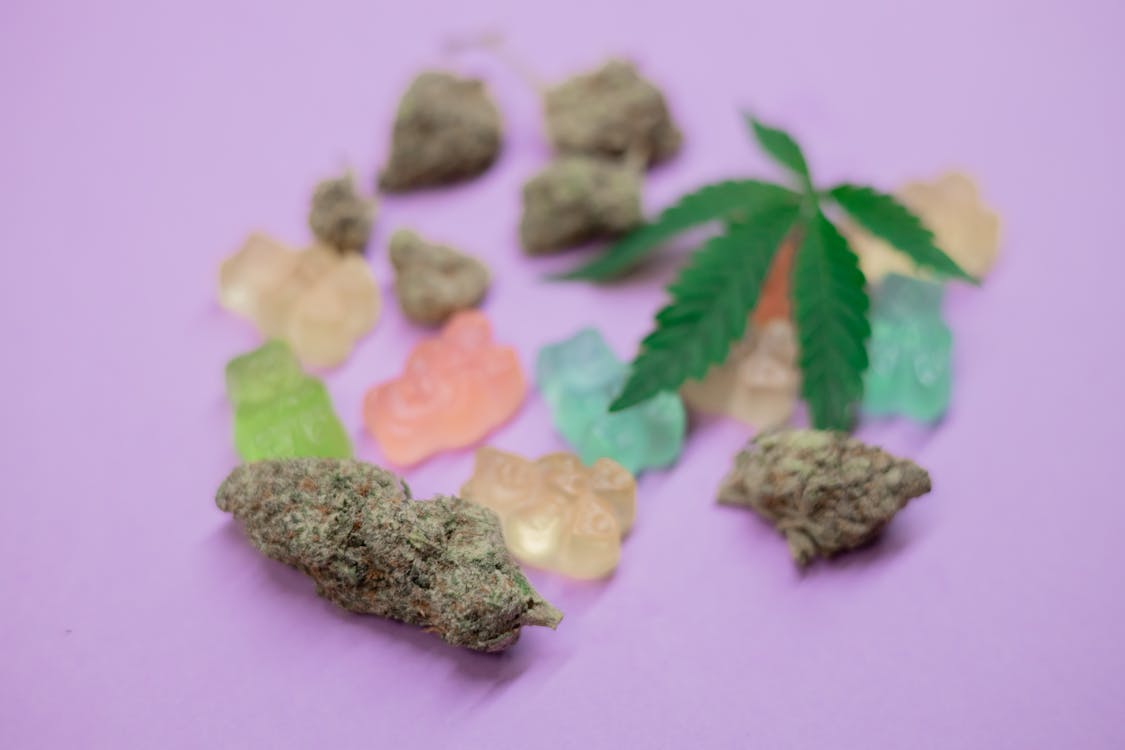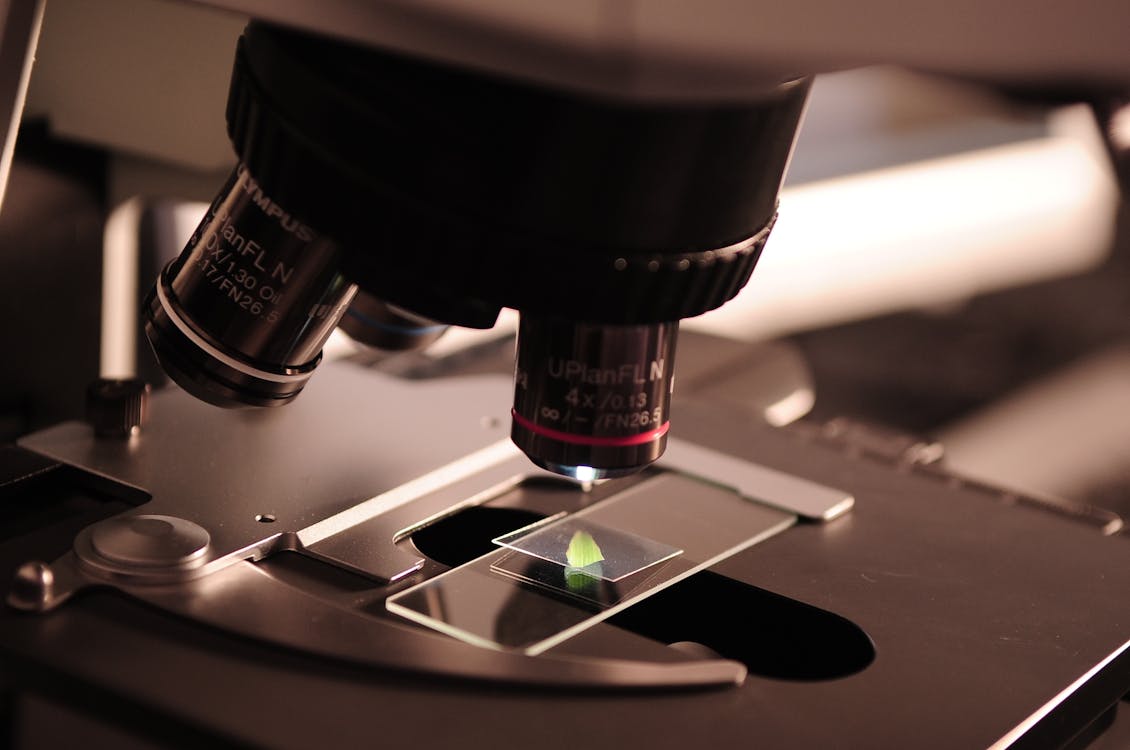In recent years, the popularity of cannabis edibles has soared, offering consumers a discreet and convenient way to enjoy the effects of cannabis. However, as with any substance, concerns, and questions arise regarding its potential health risks.
One particular concern that has caught the attention of both researchers and the general public is the potential link between edibles and strokes. The question on many people's minds is: Can edibles cause stroke?
This comprehensive article will delve into the scientific evidence, separate myths from facts, and explore the truth behind the relationship between edibles and stroke risk.
Considering the available scientific research and expert insights, it is essential to approach this topic with an open and balanced perspective.
By examining the existing evidence, we can gain a clearer understanding of the potential risks and make informed decisions regarding the consumption of edibles.
Throughout this article, we will explore various aspects, including the science behind edibles and stroke risk, the role of THC, potential risk factors, and steps to mitigate the risks associated with edibles. So, let's dive in and uncover the truth about edibles and their potential impact on stroke risk.
Understanding Edibles: What Are They And How Do They Work?
Edibles are a popular form of cannabis consumption that involves ingesting cannabis-infused products, such as baked goods, candies, or beverages.
Edibles deliver cannabis compounds into the bloodstream through ingestion, while smoking or vaping delivers them through inhalation. The liver metabolizes the compounds.
The liver converts delta-9-tetrahydrocannabinol (THC), the psychoactive component of cannabis, into its more potent form, 11-hydroxy-THC, which can result in stronger and longer-lasting effects compared to other consumption methods.
Unveiling The Link Between Edibles And Stroke: Myth or Reality?

Age, hypertension, smoking, diabetes, and pre-existing cardiovascular conditions are just a few risk factors affecting the complex medical condition known as a stroke. While cannabinoids, such as THC in cannabis edibles, can affect cardiovascular function, their specific impact on stroke risk remains uncertain.
One study published in the European Journal of Internal Medicine conducted a systematic review and meta-analysis, examining the association between cannabis use and the risk of stroke. The analysis suggested that cannabis use may be associated with an increased risk of ischemic stroke, particularly in young individuals and heavy users. However, it is essential to note that the study did not specifically focus on edibles but included various forms of cannabis use.
Another study published in the Journal of Stroke and Cerebrovascular Diseases investigated the relationship between cannabis use and ischemic stroke. The study found that cannabis use was associated with a higher prevalence of stroke, particularly in individuals under 50. However, again, the study did not differentiate between different forms of cannabis consumption, including edibles.
It is crucial to recognize that the impact of edibles on stroke risk may vary depending on factors such as dosage, frequency of use, individual susceptibility, and underlying health conditions.
Edibles typically contain THC, which can have psychoactive effects and influence cardiovascular function. THC may lead to changes in heart rate, blood pressure, and blood flow, potentially contributing to the risk of stroke in susceptible individuals.
It's important to remember that people consume cannabis edibles in smaller amounts than smoking or vaping, which might lessen its effect on the heart. Additionally, the delayed onset and prolonged duration of edibles' effects may result in individuals consuming smaller amounts over an extended period, potentially mitigating acute cardiovascular effects.
To better understand the relationship between edibles and stroke, rigorous scientific studies explicitly focusing on edibles consumption and stroke outcomes are necessary. These studies should consider various factors such as dosage, frequency, duration of use, and individual characteristics.
While some studies have suggested a possible association between cannabis use and stroke risk, more research is needed, specifically focusing on the consumption of edibles. It is vital to approach this topic from a balanced perspective, considering individual risk factors, responsible consumption practices, and consulting with healthcare professionals when necessary.
The Science Behind Edibles And Stroke Risk: Exploring The Evidence
Several factors contribute to the potential risk of strokes associated with edibles. Firstly, THC, the primary psychoactive compound in cannabis, has been found to have vasoactive properties, meaning it can affect blood vessels and blood flow.
Disrupting the delicate blood circulation balance in the brain can lead to an increased risk of ischemic stroke, which happens when a clot obstructs blood flow to the brain. However, it's important to note that these effects may vary depending on individual factors such as dosage, potency, and pre-existing medical conditions.
Moreover, a study published in the Journal of the American College of Cardiology examined the association between cannabis use and cardiovascular events, including stroke. The study found that cannabis use was associated with an increased risk of ischemic stroke and multisystem inflammatory syndrome, particularly in young individuals. However, it is essential to note that the study did not specifically focus on edibles but encompassed various forms of cannabis use.
Additionally, a systematic review and meta-analysis published in the European Journal of Internal Medicine investigated the relationship between cannabis use and cardiovascular risk factors. The analysis indicated that cannabis use was associated with increased cardiovascular risk factors such as hypertension, dyslipidemia, and diabetes. While this study did not specifically examine the relationship between edibles and stroke, it highlights the potential impact of cannabis on cardiovascular health.
It's crucial to remember that due to how the body metabolizes edibles, they may have different effects from other cannabis consumption methods like smoking or vaping. The liver processes edibles and changes THC into 11-hydroxy-THC, a more potent form. This metabolite has a longer-lasting and potentially stronger psychoactive effect, potentially impacting cardiovascular function.
The amount consumed, the potency of the product, the individual's tolerance, and any other substances present in the edible can all affect the individual's reaction to it. Furthermore, individuals with pre-existing cardiovascular conditions or risk factors may be more susceptible to adverse effects.
Debunking Misconceptions: Clarifying The Role Of THC In Stroke Incidents
THC is not solely responsible for all strokes that occur in people who use cannabis. In some cases, other factors, such as smoking or the use of other substances, may contribute to the increased risk of strokes. Additionally, it is essential to differentiate between acute intoxication and chronic use when assessing the potential risk of strokes.
Acute cannabis intoxication may lead to temporary changes in blood pressure and heart rate, increasing the risk of cardiovascular events, including strokes. However, the long-term effects of chronic cannabis use on stroke risk are still not fully understood and require further investigation.
Furthermore, a study published in the American Journal of Medicine examined the association between cannabis use and cerebrovascular events, including strokes. The study found that cannabis use was associated with an increased risk of ischemic stroke, particularly in young individuals and those with pre-existing cardiovascular risk factors. It is worth noting, however, that the role of THC in actual stroke incidents was not the primary focus of this study.
Another study published in the Journal of Stroke and Cerebrovascular Diseases investigated the effects of cannabis on stroke subtypes, including ischemic stroke and intracerebral hemorrhage. The study found that while cannabis use was associated with an increased risk of ischemic stroke, there was no significant association with intracerebral bleeding. The statement implies that the connection between using cannabis and having a stroke may differ based on the type of stroke.
It is worth mentioning that THC, the psychoactive compound in cannabis, has been found to have vasoactive properties, meaning it can affect blood vessels and blood flow. The vasoactive effect has been proposed as a mechanism that may increase the risk of strokes. There is still much uncertainty about whether or not THC increases the risk of stroke.
More research is needed to fully understand THC's role in stroke incidents. Studies specifically focusing on the effects of THC on cerebrovascular health and stroke outcomes would provide valuable insights into the potential risks and mechanisms involved.
While there is some evidence to suggest a potential association between THC and increased stroke risk, further research is required to establish a clear causal relationship. It is vital to approach this topic with caution and recognize that various factors, including acute intoxication, chronic use, and the presence of other substances, may contribute to the overall risk of strokes associated with cannabis use.
Exploring Potential Risk Factors: Are Certain Individuals More Susceptible To Edible-Related Strokes?

Individual susceptibility to the potential risks of edible-related strokes can vary based on various factors. Pre-existing cardiovascular conditions, such as hypertension, atherosclerosis, or previous strokes, may increase the vulnerability to adverse cardiovascular events, including strokes, associated with cannabis use.
Furthermore, individual factors such as age, genetic predisposition, lifestyle choices, and other risk factors can also influence the susceptibility to stroke incidents. Individuals with underlying cardiovascular conditions must consult healthcare professionals before using edibles or cannabis products.
Dosage And Potency: Finding The Balance For Safe Consumption
Dosage and potency are crucial considerations regarding the safe consumption of edibles. Edibles can vary widely in THC content, and consuming high doses without proper awareness or tolerance can increase the risk of adverse effects, including strokes.
For a safe and controlled experience, beginning with a low dosage of edibles is best. Wait at least 2 hours before taking more and assessing the effects carefully. Precise dosing is crucial for a safe and enjoyable experience.
Six key points to consider when it comes to dosage and potency for the safe consumption of edibles:
- Start with a low dosage: Begin with a low dose of THC when consuming edibles, especially if you are new to cannabis or have a low tolerance. This allows you to gauge your sensitivity and response to the edible.
- Wait and assess effects: After consuming an edible, be patient and wait for a sufficient amount before considering additional consumption. Edibles typically take longer to take effect compared to other forms of cannabis consumption, so it's important to wait at least 1-2 hours to assess the full impact.
- Understand THC potency: Edibles can vary significantly in THC potency, ranging from mild to very potent. Reading the product labels and understanding the THC content is crucial before consuming. This information can help you make informed decisions about dosage and avoid consuming more THC than desired or recommended.
- Consider individual tolerance: Everyone's tolerance to THC can vary. Factors such as body weight, metabolism, and previous cannabis use can influence how your body responds to edibles. If you are unsure about your tolerance level, starting with a lower dose and gradually increasing it as needed is advisable.
- Follow product instructions: Follow the recommended dosage instructions provided by the manufacturer or dispensary. These instructions are typically based on the average consumer's experience and can serve as a helpful guideline to ensure a safer consumption experience.
- Seek professional advice if needed: If you have specific health conditions, take medications, or have concerns about the interaction between edibles and your current health status, it is advisable to consult with a healthcare professional or cannabis specialist. They can provide personalized guidance and help you navigate the dosage and potency considerations for safe consumption.
By finding the right balance in dosage and potency and being mindful of your tolerance and sensitivity, you can enjoy a safer and more controlled experience when consuming edibles.
Recognizing The Warning Signs: How To Identify Potential Stroke Symptoms
Recognizing the warning signs of a stroke is essential for timely medical intervention. The common symptoms of a stroke include sudden weakness or numbness in the face, arm, or leg, difficulty speaking or understanding speech, severe headache, dizziness, loss of balance or coordination, and sudden vision changes.
If you or someone around you experiences these symptoms, seeking immediate medical attention by calling emergency services is crucial.
10 points to help you recognize the warning signs of a stroke and identify potential stroke symptoms:

- Sudden weakness or numbness: Pay attention to sudden weakness or numbness in the face, arm, or leg, primarily if it occurs on one side of the body.
- Difficulty speaking or understanding speech: If you or someone you know suddenly have trouble speaking or understanding what others are saying, it could be a sign of a stroke.
- Severe headache: A sudden, severe headache different from your usual headaches or migraines can be a warning sign of a stroke.
- Dizziness or loss of balance: Feeling lightheaded, dizzy, or experiencing a sudden loss of balance or coordination can indicate a stroke.
- Sudden vision changes could be a stroke symptom if you notice sudden vision changes, such as blurred vision or trouble seeing in one or both eyes.
- Facial drooping: Watch for one side of the face drooping or feeling numb, especially if other stroke symptoms accompany it.
- Arm or leg weakness: Sudden weakness, numbness, or paralysis in one arm or leg, especially on one side of the body, may be a sign of a stroke.
- Trouble walking: Difficulty walking, stumbling, or experiencing a sudden loss of coordination can indicate a stroke.
- Confusion or trouble understanding: If you or someone you know is suddenly confused, disoriented, or having difficulty understanding simple instructions, it's essential to consider the possibility of a stroke.
- Loss of consciousness: In some cases, a stroke can cause a loss of consciousness or fainting. If someone loses consciousness suddenly, it's vital to seek immediate medical attention.
Remember, time is critical when it comes to stroke care. If you observe any warning signs or suspect a stroke, call emergency services immediately and seek medical help. Prompt treatment can significantly improve the chances of recovery and minimize potential long-term effects.
The Importance Of Responsible Consumption: Best Practices For Edible Users
Responsible consumption practices are key to minimizing potential risks associated with edibles. Here are some best practices for edible users:
- Start low and go slow: Begin with a low dosage, especially if you are new to edibles or have a low tolerance. Gradually increase the dosage over time and based on your individual response.
- Read labels and understand potency: Carefully read the packaging labels of edibles to understand the THC content and serving size. This information can help you make informed decisions about dosage and consumption.
- Allow sufficient time for onset and effects: Edibles take longer to take effect compared to other consumption methods. Be patient and wait for the effects to fully manifest before considering additional consumption. Remember that the effects can last for several hours.
- Store edibles safely: Keep edibles out of reach of children and pets. Store them in a secure place to prevent accidental consumption.
- Avoid mixing substances: Combining edibles with alcohol or other substances can increase the risks and potential side effects. It is advisable to consume edibles in a controlled environment and avoid mixing them with other substances.
- Seek medical advice: If you have any underlying health conditions, especially cardiovascular or cerebrovascular conditions, it is essential to consult with a healthcare professional before using edibles or any cannabis products.
Mitigating The Risks: Steps To Take To Minimize The Potential For Edible-Related Strokes
While the research on edible-related strokes is still evolving, there are steps individuals can take to minimize the potential risks:
- Understand your health status: Be aware of your underlying health conditions, especially cardiovascular and cerebrovascular conditions. If you have a history of strokes or other cardiovascular issues, consult a healthcare professional before using edibles.
- Choose reputable sources: Purchase edibles from reputable dispensaries or manufacturers that follow strict quality control measures. Ensure that the products are accurately labeled and tested for potency and contaminants.
- Educate yourself: Stay informed about the latest research, guidelines, and recommendations regarding cannabis consumption. Understand the potential risks and be aware of responsible consumption practices.
- Moderation is key: Consume edibles in moderation and avoid excessive or frequent use. Be mindful of your tolerance level and the effects of edibles on your body.
- Seek medical advice: If you have any concerns about the potential risks of edibles or have a history of strokes or cardiovascular conditions, consult a healthcare professional. They can provide personalized advice based on your health situation.
The relationship between edibles and the risk of stroke is a complex and evolving topic. While some studies suggest a possible association, more research is needed to establish direct causality.
It is essential to approach this topic with an understanding of individual factors, responsible consumption practices, and consulting with healthcare professionals when necessary. By staying informed and practicing moderation, individuals can make informed decisions regarding whether edibles cause stroke and minimize the potential risks of edibles.
Contact us
We want to express our heartfelt gratitude for taking the time to explore our blog. Your engagement means the world to us! If you're eager to dive deeper into the world of premium cannabis, CBD, and alternative health products, we invite you to visit our homepage at Devine Boston.
For an immersive experience and access to our curated selection of exceptional products, you can also stop by our store at 619 E Broadway, Boston, MA 02127, United States. Our dedicated team is ready to assist you in finding the perfect choices to meet your needs and preferences.
Should you have any questions, require assistance, or simply want to connect with us, please feel free to reach out via our contact page at Devine Boston Contact. We're here to provide you with the highest level of service and expertise. Thank you once again for being a part of the Devine Boston community, and we look forward to serving you soon!

